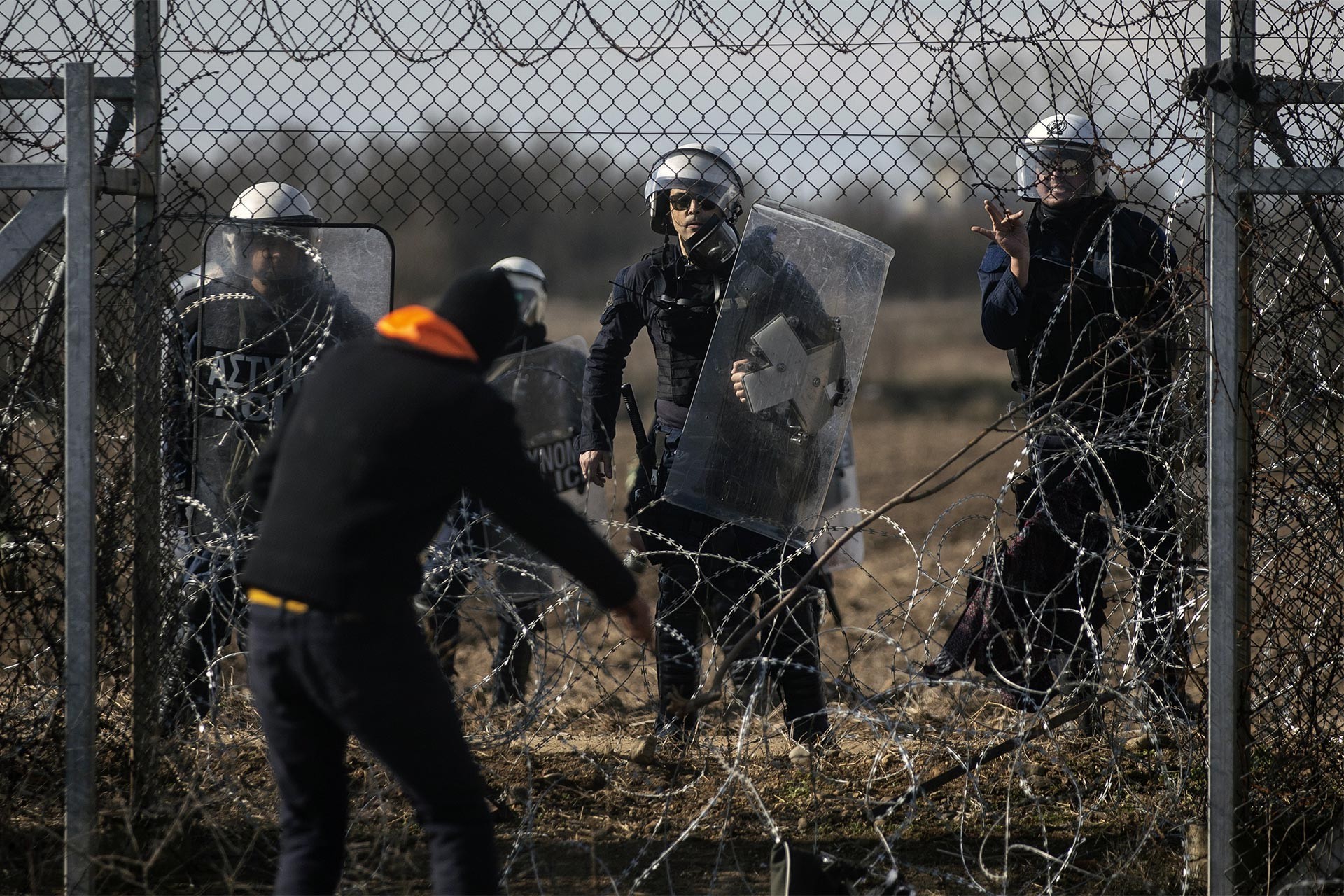It has come to this: Refugees as instruments of war
Turkey is pushing refugees over the border and Greece is pushing them back. What we are watching is a Turkish-Greek jointly produced film of shame. The refugees are like a ping-pong ball toing and froing across the tennis table.
 Photograph: AA
Photograph: AA
Ercüment AKDENİZ
The right-wing government in Greece is pitiless towards refugees. Be they old, children or handicapped, the people massing at the border gate are stifled with gas and bombarded with stun grenades. The war launched against refugees is called a “push back.” Greece previously came to attention for the countless cases of torture along the Maritsa river.
So, what should the method the Turkish government is implementing be called? I think it could be called a “push forward.” Turkey is pushing refugees over the border and Greece is pushing them back. What we are watching is a Turkish-Greek jointly produced film of shame. The refugees are like a ping-pong ball toing and froing across the tennis table. The false hopes and torment are incalculable.
Becoming isolated in the Syrian theatre, the AKP administration is using the refugees as a political trump card. It wants to spread the crisis to Europe by means of the refugees. This is what it basically boils down to. The world saw two big imperialist wars in the twentieth century and millions of refugees were displaced. But it fell to the AKP in the twenty-first century to use refugees as an instrument of war.
Nothing but disgrace meets the eyes:
Millions of refugees are transported in municipal vehicles in the knowledge that the gates will not be opened. Speaking to NTV, a woman refugee says, “Officials say, ‘The gate is closed. Go by sea.’”Human traffickers brag, “The Chief has given permission anyway. We have started to transport the refugees.”The boarding of children and babies onto dinghies is broadcast live, gangs dispatch people on deadly journeys, etc.
All of these things are for sure crimes against humanity. Those who turn a blind eye to and facilitate this need shed no crocodile tears when the first child drowns in the Aegean because they hold political responsibility for this entire disgrace.
So, what about society?
You see the throngs along Vatan Street in Istanbul seeking to get aboard the buses. Refugee babies are tossed from hand to hand. A woman refugee is separated from her husband and screams. And, with all this going on, passing cars honk their horns and swearing emerges from the windows. Some shout, “Piss off and don’t come back again.” While in Adana, shops are shuttered and people stay indoors to keep Syrians from being lynched.
Do you know what this means? This means the pent-up hatred of Syrians over nine years is manifesting itself as a social eruption. How can there be intermingling under such circumstances? Where will things end up when those who leave are forced to return? We are clearly in a period in which everyone needs to exercise common sense. Questioning government decisions? OK. Criticizing political power, erroneous foreign policy and the erroneous refugee policies this policy engendered? This, of course, is what is called for at the same time. But directing the anger towards refugees can and must never be accepted.
Do you know who the first to go were when it was announced that the border gates would be opened? Those at the bottom – Syrians, Afghans, Uzbeks, Congolese. Those incapable of enduring a life devoid of status, harrowing working conditions and half-price wages, in short, the cog wheels of capitalism. A textile-worker refugee in Istanbul has the following comment: “It’s better if I go to the border rather than living under the fear of repatriation and dodging the police on the way to work.”
Are all these circumstances not being experienced thanks somewhat to the inability of workers, local and refugee, to join hands and their failure to change this ruleless working order in unison?
Look what a father on the Edirne border says speaking to Evrensel with his child in his hands and among a cloud of gas: “This is a political game. They made plenty of mistakes towards us. Neither Turkey nor Greece or Europe recognize us as people. You won this game so well done.”
The European Union also bears plenty of guilt in this refugee exchange founded on political disputes. They asked EU spokesperson Stano in Brussels about the refugees crossing the Greek border. The man’s reply was precisely, “If we are witnessing any increase … we will act accordingly.”
So, how will these developments change course?
It is clear that, however much they have been tabled, imperialist solutions have not been the solution in Syria. If the region is to breathe freely, the bloodshed is to stop and the tears are to cease, the brotherhood of peoples and struggle for peace will open the way to this. Only then will refugees avoid being made into an instrument of war.
A final note:
Why, faced with the human drama taking place at the border gates, are Thrace’s and Istanbul’s trade unions, associations and democratic mass organizations unable to display effective solidarity? Let us ask ourselves this question on behalf of every woman, child and even swaddled baby refugee. And, whatever steps can be taken, let us take them quickly.
(Translated by Tim DRAYTON)


Follow Evrensel